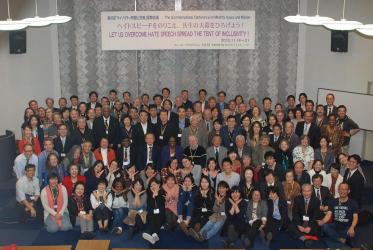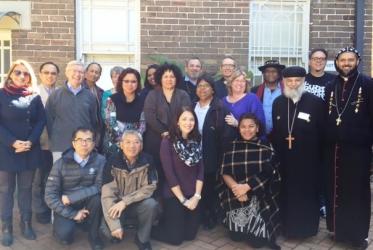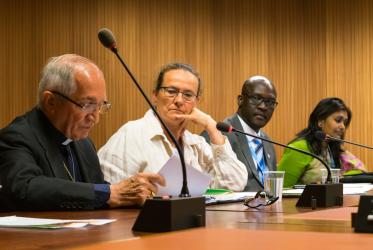Displaying 61 - 80 of 97
01 December 2015
WCC praises Church of South India as a truly united church
26 November 2015
Land rights focus of panel discussion
17 November 2015
A humble man firmly rooted in faith
20 August 2015
Joint efforts to fight violence against children
18 June 2015
A moment with the new CCA general secretary
18 June 2015
WCC Executive Committee speaks out on migrant crises
12 June 2015
Christians around the world pray for unity
22 January 2015
Pilgrimage of justice and peace gives vision for WCC programmes
22 November 2014
New UN document opens door for churches to do more for indigenous rights
23 September 2014










